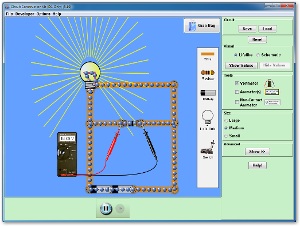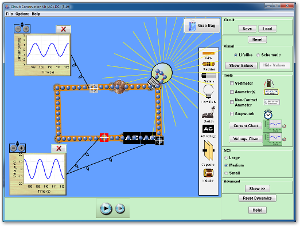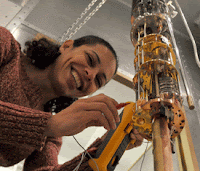 Our online Black History Month event ended on February 27, 2012but we're still participating in the discussion. Join our FB group created by Balogun
Our online Black History Month event ended on February 27, 2012but we're still participating in the discussion. Join our FB group created by Balogun
http://www.facebook.com/groups/206033916159175/
If you're new to the discussion. Start with these links:
Day 1: What is the State of Black Sci-Fi 2012?
Day 2: Why I Love Teen Dystopian Sci-Fi?
Day 3: Why is it important to show race, class, minority politics, or ethnicity in SciFi?
Day 4: Giveaways and Upcoming Paranormal Romance from Alicia McCalla
Day 5: I heart Onyx Con!
Day 6: My Tribute to SF Icon Octavia Butler
Day 7: The Grand Finale with a New Short Story from Alicia McCalla
Keep the discussion going for longer than the month of February. Please share it with university professors and high school English teachers. There's still time to talk to the participating artists, authors, and bloggers.
Check out the other members of this Online Black History Month Event:
L. M. Davis, Author--began her love affair with fantasy in the second grade. Her first novel,Interlopers: A Shifters Novel, was released in 2010, and the follow-up Posers: A Shifters Novelwill be released this spring. For more information visit her bloghttp://shiftersseries.wordpress.com/ or her website www.shiftersnovelseries.com.
Milton Davis, Author– Milton Davis is owner/publisher of MVmedia, LLC . As an author he specializes in science fiction and fantasy and is the author of Meji Book One, Meji Book Two and Changa’s Safari. Visit him: http://www.mvmediaatl.com/Wagadu/ andwww.wagadu.ning.com.
Margaret Fieland, Author-- lives and writes in the suburbs west of Boston, MA with her partner and five dogs. She is one of the Poetic Muselings. Their poetry anthology, Lifelineshttp://tinyurl.com/LifelinesPoetry/ is available from Amazon.com Her book, "Relocated," will be available from MuseItUp Publishing in July, 2012. The Angry Little Boy," will be published by 4RV publishing in early 2013. You may visit her website, http://www.margaretfieland.com.
Valjeanne Jeffers, Author -- is an editor and the author of the SF/fantasy novels: Immortal, Immortal II: The Time of Legend and Immortal III: Stealer of Souls. Her fourth and fifth novels: Immortal IV: Collision of Worlds and The Switch: Clockwork will be released this spring. Visit her at: http://valjeanne.wordpress.com andhttp://qandvaffordableediting.blogspot.com/
Alicia McCalla, Author- writes for both young adults and adults with her brand of multicultural science fiction, urban fantasy, and futurism. Her debut novel, Breaking Free will be available February 1, 2012. The Breaking Free theme song created by Asante McCalla is available for immediate download on itunes and Amazon. Visit her at: http://www.aliciamccalla.com
Carole McDonnell, Author--She writes Christian, speculative fiction, and multicultural stories. Her first novel is Wind Follower. Her short fiction has appeared in many anthologies and have been collected in an ebook, Spirit Fruit: Collected Speculative Fiction. Visit Carole:http://carolemcdonnell.blogspot.com/ or http://writersofcolorblogtour.blogspot.com/
Rasheedah Phillips,Author--is the creator of The AfroFuturist Affair in Philly. She plans to debut her first spec/sci-fic novel Recurrence Plot in Spring 2012. You may catch her ruminating from time to time on her blog, AstroMythoLosophy.com.
Nicole Sconiers, Author-is also a screenwriter living in the sunny jungle of L.A. She holds an MFA in creative writing from Antioch University Los Angeles, and she recently published Escape from Beckyville: Tales of Race, Hair and Rage. Visit her: http://nicolesconiers.com/index.html
Jarvis Sheffield, M.Ed. is owner & operator of TheDigitalBrothers.com, BlackScienceFictionSociety.com & BlackCommunityEntertainment.com. Visit him:http://www.blacksciencefictionsociety.com/profiles/blog/list?user=2stjwb1h216fd

 Our online Black History Month event ended on February 27, 2012but we're still participating in the discussion. Join our FB group created by Balogun
Our online Black History Month event ended on February 27, 2012but we're still participating in the discussion. Join our FB group created by Balogun 





 This is the last week of our amazing online Black History Month event. It’s been an enlightening experience. I’d like to take the time to thank everyone who has participated from the other bloggers to the readers, retweeters, and commenters. You all have been wonderful. My winners this week are Chicki Brown and Ellen Barrow. Congratulations! This week we have a special treat. Each participant has created an original short story.
This is the last week of our amazing online Black History Month event. It’s been an enlightening experience. I’d like to take the time to thank everyone who has participated from the other bloggers to the readers, retweeters, and commenters. You all have been wonderful. My winners this week are Chicki Brown and Ellen Barrow. Congratulations! This week we have a special treat. Each participant has created an original short story.




